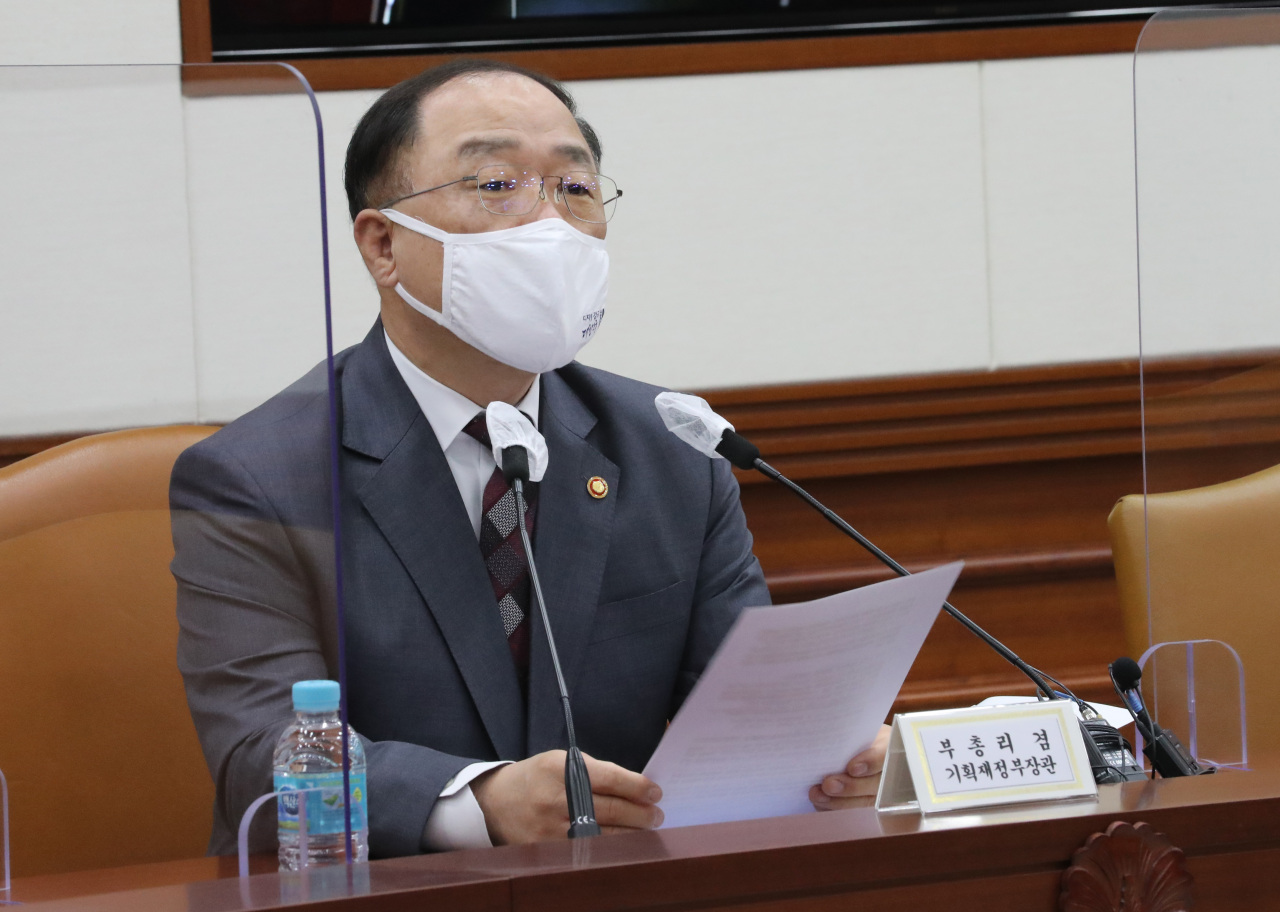 |
Finance Minister Hong Nam-ki presides over a meeting on innovative growth at the government complex building in Seoul on Wednesday. (Yonhap) |
South Korea plans to invest more than 200 billion won ($176 million) in developing automotive chip-making technology by 2022 in an effort to nurture the next-generation vehicle sector, the finance minister said Wednesday.
Finance Minister Hong Nam-ki said the government plans to cooperate with local automakers to find ways to ease a current supply shortage of automotive chips that may last until the third quarter.
"As automotive chips are key parts of the car industry and demand for future-generation cars is high, it is urgent to ease a short-term supply shortage of such chips, enhance supply channels and preempt the market," Hong said at a meeting with government officials on innovative growth.
The government plans to invest 75.7 billion won in related research and development projects this year, with the combined amount expected to reach 204.7 billion won over the 2020-2022 period.
South Korea has set the non-memory chip, bio-health and next-generation vehicle sectors as the "BIG 3" industries that it seeks to nurture for job creation and innovation-driven growth.
Hong said the government will focus on investing in developing automotive application processors and other key auto chip-making technologies.
The country plans to consider allowing state-run banks to offer loans with lower rates if companies seek to expand automotive chips-related foundry business.
South Korea, meanwhile, also plans to expand efforts to cope with the current global shortage of automotive chips.
Global carmakers have been facing trouble in securing the chips, as the automobile industry has been recovering from the fallout of the COVID-19 pandemic at a faster-than-expected pace.
The plans include excluding businesspeople from the mandatory two-week quarantine when they travel abroad to secure the chips.
The country said it has been simplifying customs procedures for automotive chips since February as well.
The global market for automotive chips is expected to reach $67.6 billion in 2026, compared to $38 billion tallied in 2020, the industry ministry said, citing the data compiled by industry tracker IHS Markit.
South Korea is the world's leading exporter of memory chips, but 98 percent of its demand for automotive chips depends on overseas sources.
The country said the shortage is expected to run through at least the third quarter, and vowed to expand cooperation with overseas partners, including those from Taiwan. (Yonhap)








